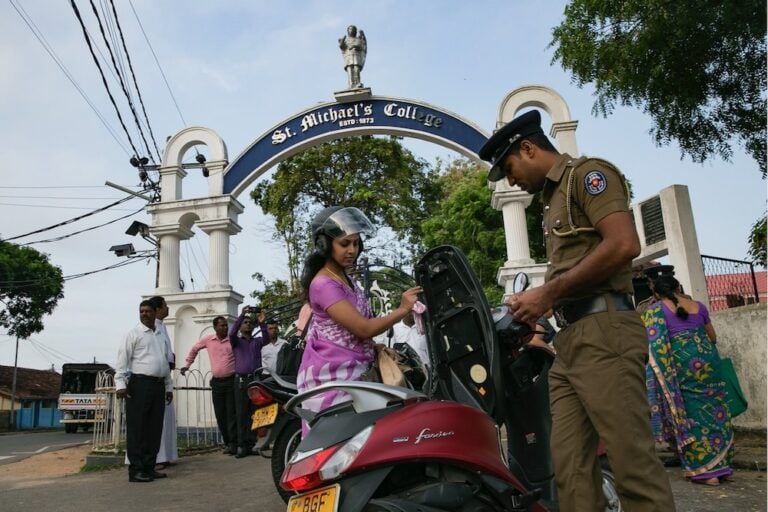(ARTICLE 19/IFEX) – The following is an ARTICLE 19 press release: 11 June 2001 LIFTING OF SRI LANKA MILITARY CENSORSHIP WELCOMED ARTICLE 19 welcomes the decision of the Sri Lankan Government to repeal the Emergency Regulations which imposed prior censorship and other restrictions on military news. The international human rights organisation also called for further […]
(ARTICLE 19/IFEX) – The following is an ARTICLE 19 press release:
11 June 2001
LIFTING OF SRI LANKA MILITARY CENSORSHIP WELCOMED
ARTICLE 19 welcomes the decision of the Sri Lankan Government to repeal the Emergency Regulations which imposed prior censorship and other restrictions on military news. The international human rights organisation also called for further measures to facilitate informed debate on Sri Lanka’s conflict.
Andrew Puddephatt, Executive Director of ARTICLE 19, said:
“The lifting of prior censorship in relation to military issues is long overdue and most welcome. We hope that it will be accompanied by an improvement in access to conflict areas for journalists, so that the people of Sri Lanka can benefit from first-hand independent information on what is happening in their country.
“We urge the Government to follow up this very positive move as soon as possible by introducing a wide-ranging freedom of information act. This would effectively challenge the culture of official secrecy and guarantee the right of the public to gain access to official documents, statistics and so on, an essential part of informing the country’s peace-building process and facilitating development.”
At present, information on the conflict is closely supervised and selectively released by the government and the LTTE. Journalists must seek official permission to enter conflict areas and are generally required to be part of organised guided tours and official visits. ARTICLE 19 understands that those accused of assisting international correspondent Marie Colvin, of the London-based Sunday Times, who was wounded while reporting from a conflict area, are being held without charge.
We also call upon all those seeking to limit freedom of expression by attacking or muzzling journalists to respect their non-combatant status and right to freedom of expression, guaranteed under international law. We are particularly concerned that targeting of journalists leads to widespread self-censorship, since those who are outspoken may face heavy retribution. A terrible example is the unsolved murder in October 2000 of Mylvaganam Nimalrajan, a journalist working in Jaffna. ARTICLE 19 welcomes the official inquiry into his killing and calls upon the government to ensure that those responsible are brought to justice in a court of law.
NOTES FOR EDITORS
1. In April 2000, national transmission of the BBC’s services in local languages ceased when the Sri Lankan Broadcasting Corporation withdrew an agreement to transmit the programmes on FM.


